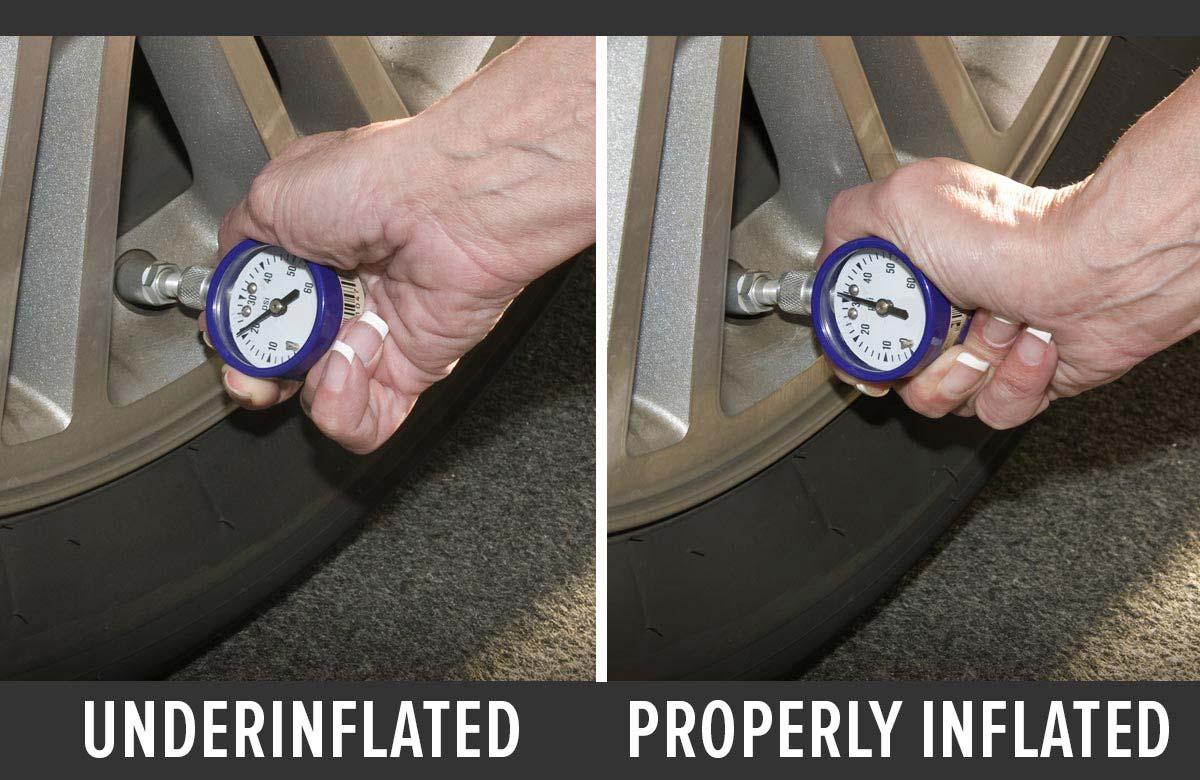Have you ever wondered why your tires make that annoying squealing noise when you make a turn? It can be quite alarming, but fear not, there is a simple explanation behind it. In this article, we will explore the reasons behind tire squealing and what you can do about it.
Table of Contents
The Science Behind Tire Squealing
You might have noticed that your tires squeal during fast acceleration, braking, and turns. This happens because the tread of your tires skids against the road surface in an attempt to gain traction. When you speed up, the skidding creates a squealing sound. The same applies to hard braking, where the tires leave skid marks on the road. Additionally, when you take sharp corners, the rubber slides laterally on the road surface, producing a squealing sound.
Underinflated Tires and Alignment Issues
If you notice tire squealing even during gentle turns, there could be an issue with your tires. Underinflated tires tend to flex too much, causing them to squeal. So make sure to regularly check your tire pressure and keep them properly inflated. This will not only prevent tire squealing but also extend the tread life of your tires.
Another possible reason for tire squealing during turns is an alignment issue. If your vehicle’s alignment is off, it can cause the tires to slip sideways more, resulting in that dreaded squealing sound. It’s essential to get your alignment checked and adjusted if necessary.
Differentiating Normal Tire Sounds from Potential Problems
Not all tire squealing indicates a problem. For example, when you turn on a tight radius at slow speeds, like in a parking garage or on painted surfaces, you might hear a squeaky shoe sound. This is a normal occurrence due to tire slippage on slick surfaces. In enclosed spaces, the sound can echo and appear louder than it actually is. It’s harmless noise, so no need to worry.
However, it’s crucial to differentiate between normal tire squealing and sounds that could indicate other issues. Misalignment, worn brake pads, or suspension parts can also produce squealing sounds. Here’s a list of potential sources of tire squealing:
- Accelerating: When you accelerate quickly, the tires spin at a much higher rate than before. This causes the rubber to peel off and stick to the road, resulting in a squealing sound.
- Braking: Hard braking abruptly slows down the tires, causing them to drag along the road instead of rolling. This leaves skid marks and produces a squealing sound.
- Turning: During a turn, the tires slip sideways to change the direction of the vehicle. Higher speeds lead to more sliding and, consequently, tire squealing.
- Underinflation: Underinflated tires cannot handle the forces at work during a turn. The sidewalls flex excessively, reducing traction and causing the rubber to slide sideways, resulting in tire squealing.

- Worn Tread: Tires that are nearing the end of their life or have uneven wear tend to squeal more. Uneven tread patterns or depths reduce road grip, making it easier for the tires to slip during cornering, acceleration, or braking.
- Other Car Parts: While tire issues are a common cause of squealing sounds, other car parts can also be to blame. This includes brake pad wear indicators, misaligned suspension, worn bushings or bearings, lubrication issues in steering system parts, or loose or worn engine drive belts.
Taking Action Against Tire Squealing
If you hear tire squealing, the first step is to check your tire pressure. Ensure that it is at the recommended level. If underinflated tires are not the problem and the noise persists, it’s essential not to ignore it. Bring your vehicle in for service to identify the source of the squealing. Addressing the issue promptly can prevent more significant and costlier repairs down the road.
So, the next time your tires squeal when you turn, remember that it’s a natural phenomenon caused by tire skidding. Regular maintenance, such as checking your tire pressure and getting your alignment checked, can help minimize tire squealing and keep your driving experience smooth and safe.
[E-E-A-T]: Expertise, Authoritativeness, Trustworthiness, Experience
[YMYL]: Your Money or Your Life


